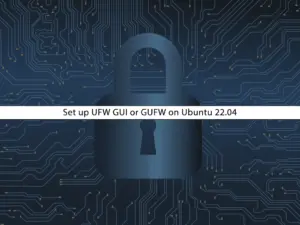Share your love
Essential Facts About /etc/passwd File in Linux

To know about /etc/passwd File is essential for every Linux admin user. This file is an essential part of the Linux system, a directory that stores user information. The /etc/passwd file plays an important role in user management and system security.
This tutorial intends to discuss structure, security aspects, and other essential information about the /etc/passwd file in Linux.
Introduction To /etc/passwd File in Linux
As you know, the /etc/passwd is an important file that stores the user’s information in Linux distributions. Every user who works with Linux must know about this file and understand the structures and security aspects of this important file. Now you can follow the rest of the article and get the information in detail.
Understand The /etc/passwd File Structure
The general format of this file looks like this:
username:password:UID:GID:GECOS:home_directory:shellThe structure provides the user’s information in detail. Let’s see the meaning of each field:
- Username: The name of the Linux user.
- Password: It stores the user’s password. This field will show an X value because of security reasons. Only admin users can access the passwords in the /etc/shadow file.
- UID: Each user has a unique ID which is called UID. It’s used by many system utilities and commands like ls, top, ps, etc., to get UIDs.
- GID: Also, each user at least is a member of one group which is identified by GID.
- GECOS: This field contains additional user information like the user’s home directory and shell.
Why /etc/passwd File is an Important Part of Linux System?
In this part, we want to discuss the importance of the /etc/passwd file. First, it is an essential task for user authentication. This file stores the user’s information such as username and password. So you can easily manage your user authentication from this file. However, the passwords can be accessible through the /etc/shadow file with admin privileges.
The second essential task is for the System processes. As you may know, Linux systems use the UID and GUI to manage processes and permissions. The IDs in the /etc/passwd file help you to find processes a user can run and access.
Another important task is managing user information. Linux administrators can use commands like useradd, usermod, and userdel for adding, modifying, and deleting user records in /etc/passwd.
Security Aspects of passwd File
Because of the essential details in the /etc/passwd file like usernames, user ID, and group ID, it is considered as the backbone of Linux system security.
Linux administrators must be sure that only root has access to this file because of security reasons. You can keep your passwords in /etc/shadow file. It is highly restricted and increases your security performance. The /etc/passwd is accessible by all users and is not recommended.
Also, you can consider additional security tools like SELinux. With these tools, you can control over which processes can access the /etc/passwd file.
Another security task is to monitor the file. Keep regular monitoring and auditing of the /etc/passwd file.
Conclusion
As you must now know Understanding the /etc/passwd file is an essential task for every Linux admin user. It acts the part of the Linux user account and authentication. Always consider the security aspects and update yourself with Linux.
Hope you enjoy it. Also, you may like to read the following articles:



